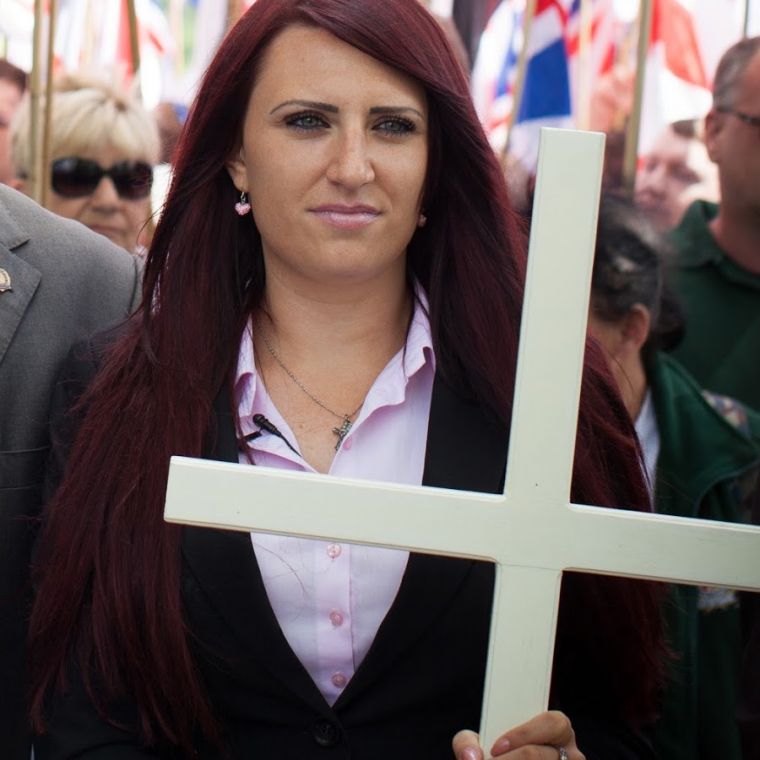Weaponising faith: How the cross is being used by right-wing nationalists
There's a little-noticed controversy brewing in the German state of Bavaria which ought to worry Christians everywhere. That's not because it directly affects us, if we don't live there, but because it's a straw in the wind that says something about how Christianity is being co-opted by politics.
The Bavarian government has decided to mark the 'Christian identity' of the 'Land' by hanging crosses in all its public buildings.

Now, it's quite possible to argue that this is just a recognition that the state is historically Christian (and Catholic, actually) – as Bavaria's chief minister Markus Söder does. But that's not how it's being seen by many Christians today. According to Evangelical Focus, a survey in Bild Am Sonntag found 64 per cent of the population is against the move, including 62 per cent of Protestants and 48 per cent of Catholics.
An open letter from the Union of Young Catholics and the youth wing of the EKD, the main Protestant church, said: 'As young Christians we are shocked.' It continued, 'the Christian symbol of the salvation of God for everyone is being used to draw limits and exclude people', adding that the political use of this Christian symbol leads to 'emptying its theological meaning'.
This is precisely correct. It is not, in fact, the first time a European government has tried it – Italy fought a long-running battle to be allowed to display crucifixes in schools that ended up in the European Court of Human Rights, which found in its favour in 2011. Again, it was fiercely resisted by the country's Protestants, who saw the imposition of a Catholic symbol as discriminatory and offensive.
The question of how the state should use religious symbols has been an ongoing and controversial feature of US life, too. The notorious Judge Roy Moore, who lost a Senate election last year amid a welter of accusations about sexual misconduct, was better known for refusing to remove a granite monument depicting the Ten Commandments from state property. He was removed from office, but his case was a rallying-point for conservatives who wanted to assert the Christian character of the country.
What these three cases have in common is that they are not about religion. They are using a religious symbol as a proxy for something else. In the case of Bavaria, it is fear of Muslim immigration; last year the state banned burqas and full-face Islamic veils. In Italy it was a reaction by a right-wing government to the perceived erosion of Italy's Catholic identity by aggressive secularism (and by Islam, too). In the US, the inconveniently massive monument – while obviously breaching the country's famed separation of church and state – was a political statement of conservative opposition to the entire 'liberal' drift of US society. Moore himself is an outspoken opponent of homosexuality and Islam, among much else.
And that's not all. In Poland and Hungary, leaders appeal to Christianity as a bulwark against the watering down of the native populations by an influx of foreign (Muslim) migrants. Hungary's prime minister, Viktor Orban, has vowed to create a 'Christian homeland'. In the UK, the absurd Britain First organisation staged 'Christian patrols' in Muslim-majority areas, using crosses to intimidate Muslims and assert Britain's 'Christian' identity. In Trump's America, evangelicals back their president not because he's particularly religious – they know he's not – but because his nationalist rhetoric chimes so exactly with what they think about their country, and their worries about how it's changing. A Muslim travel ban? That sounds pretty good to them.

So what if one German state wants to put a crucifix on the wall of a town hall? At one level, it's no big deal. But again and again, we've seen what happens when religion gets co-opted by nationalists. People stop thinking clearly. They start seeing enemies where they should be seeing friends and allies. Religion doesn't sanctify politics, it gets corrupted by politics.
It's possible, of course, to get too wound up about all this – the conclusion, in fact, of the ECHR in the case of the Italian crucifixes when it reversed an earlier ban. It said a crucifix was 'an essentially passive symbol'. Well, perhaps – though Christians ought to worry about the cross of Christ being described in such terms. But when it's used as an aggressive, hostile statement of national and cultural identity instead of a symbol of God's love for the whole world, we should definitely worry.
Critics of evangelicals in the US accuse them of weaponising faith in the service of a toxic world-view. What's happening in Europe shows they aren't alone. But we don't need weapons to spread the gospel – particularly not a weapon disguised as a cross.
Follow Mark Woods on Twitter: @RevMarkWoods











